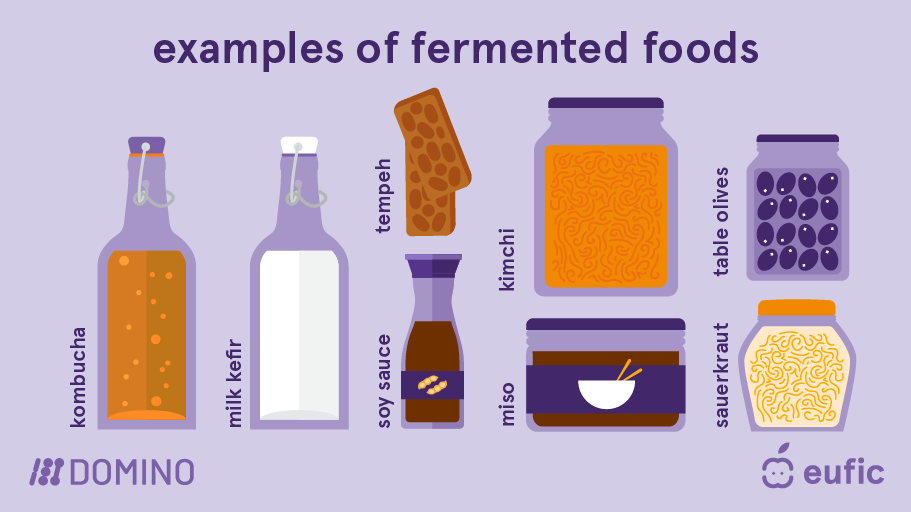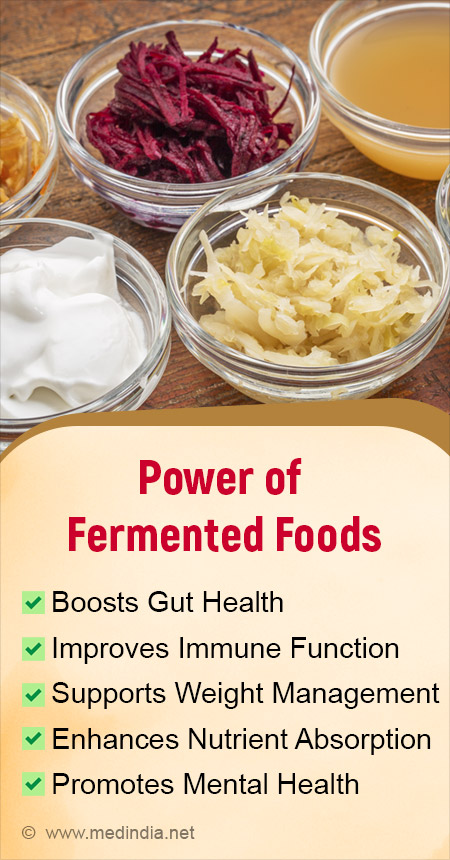Fermented foods have been a staple in many cultures for centuries, and for good reason. These foods not only add a unique flavor to your meals but also offer a plethora of health benefits. As someone who has personally delved into the world of fermented foods, I can attest to their transformative power on both my gut health and overall well-being. Let’s dive into the fascinating world of fermented foods and uncover why they should be a part of your daily diet.
What Are Fermented Foods?

Fermented foods are those that have undergone a process of controlled microbial growth and enzymatic conversions of food components. This process, known as fermentation, is facilitated by microorganisms like bacteria, yeast, and fungi. The most common types of fermented foods include yogurt, kefir, sauerkraut, kimchi, kombucha, and tempeh. Each of these foods undergoes a unique fermentation process, resulting in a product that is rich in probiotics, vitamins, and enzymes.
For example, yogurt is made by fermenting milk with lactic acid bacteria, which not only enhances its nutritional value but also makes it easier to digest. Similarly, sauerkraut is made by fermenting cabbage with salt, which preserves the vegetables and increases their vitamin content.
The Gut-Health Connection

One of the most significant benefits of fermented foods is their impact on gut health. The gut is home to trillions of microorganisms, collectively known as the gut microbiome. This microbiome plays a crucial role in digestion, immune function, and even mental health. Consuming fermented foods can help maintain a healthy balance of gut bacteria, which is essential for overall health.
For instance, kefir, a fermented milk drink, is packed with probiotics that can help restore the natural balance of gut flora. This can be particularly beneficial for individuals suffering from digestive issues like irritable bowel syndrome (IBS) or inflammatory bowel disease (IBD).
Boosting Immune Function

Another remarkable benefit of fermented foods is their ability to boost immune function. A healthy gut microbiome is closely linked to a robust immune system. By consuming fermented foods, you can enhance your body’s ability to fight off infections and diseases.
Take kimchi, for example. This Korean side dish is made from fermented vegetables, such as cabbage and radishes, and is rich in vitamins A and C, as well as probiotics. Studies have shown that regular consumption of kimchi can improve immune response and reduce the risk of respiratory infections.
Enhancing Nutrient Absorption

Fermented foods can also enhance the absorption of essential nutrients. During the fermentation process, enzymes are produced that break down complex compounds into simpler forms, making them easier for the body to absorb. This can be particularly beneficial for individuals with digestive issues or those who have difficulty absorbing nutrients from their diet.
For example, tempeh, a fermented soy product, is easier to digest than raw soybeans. This makes it an excellent source of protein and other nutrients, such as iron and calcium, for those who may have trouble digesting other forms of soy.
Comparison of Popular Fermented Foods
| Fermented Food | Probiotic Content | Nutritional Benefits | Common Uses |
|---|---|---|---|
| Yogurt | High | Protein, calcium, probiotics | Breakfast, smoothies, desserts |
| Kefir | Very High | Protein, calcium, probiotics | Drinks, smoothies, cooking |
| Sauerkraut | Moderate | Vitamins C and K, probiotics | Side dishes, toppings, salads |
| Kimchi | High | Vitamins A and C, probiotics | Side dishes, toppings, cooking |
| Kombucha | Moderate | Antioxidants, probiotics | Drinks, cocktails, cooking |
| Tempeh | Moderate | Protein, iron, calcium | Main dishes, salads, sandwiches |
Practical Tips for Incorporating Fermented Foods into Your Diet
Incorporating fermented foods into your diet doesn’t have to be complicated. Here are a few simple tips to get you started:
- Start Small: Begin with small portions of fermented foods to allow your gut to adjust. Gradually increase the amount as your body becomes accustomed to them.
- Choose Quality: Opt for high-quality fermented foods that are made with natural ingredients and without added sugars or preservatives.
- Mix and Match: Experiment with different types of fermented foods to find the ones you enjoy the most. You can mix and match them with your regular meals to add variety.
For example, you can add a dollop of yogurt to your morning smoothie, or enjoy a side of kimchi with your lunchtime sandwich. The possibilities are endless!
Quotes from Experts
“Fermented foods are a powerful tool for maintaining gut health and boosting overall well-being. They provide a natural source of probiotics and enzymes that can help restore balance to the gut microbiome.” – Dr. Mark Hyman, Functional Medicine Expert
Fermented foods are more than just a trendy health fad; they are a time-tested way to improve your health and well-being. By incorporating these foods into your diet, you can enjoy a host of benefits, from better gut health to a stronger immune system. So why not give them a try and see the positive impact they can have on your life?






